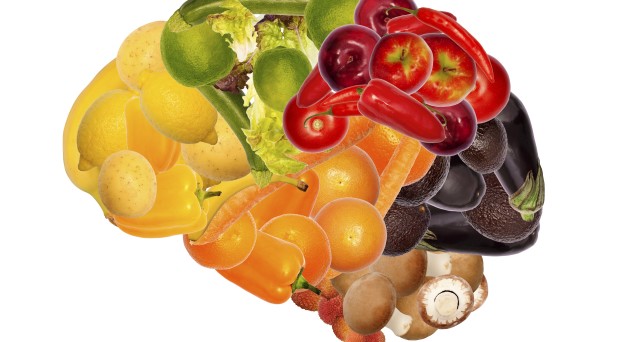
Associate Professor Felice Jacka is a Principal Research Fellow at Deakin University and is president of both the International Society for Nutritional Psychiatry Research (ISNPR) and the Australian Alliance for the Prevention of Mental Disorders (APMD).

She is internationally recognized as a pioneering researcher in the new discipline of Nutritional Psychiatry, leading multiple studies establishing associations between diet quality and mental health in adults, adolescents and children from many countries.
Her goals are to develop effective, best-practice strategies for the universal primary prevention of the common mental disorders, as well effective secondary prevention and treatment strategies for those affected.
Your study includes a cohort of 60-64 year olds, who you followed for four years. This is a sub-cohort of the Personality and Total Health (PATH) Through Life Study. Can you tell us a bit about this project and the sub-cohort you included in this research?
The PATH Through Life Study has been underway since 1999. It involves a randomly selected sample of adults from the Australian Capital Territory, which is where you will find our national capital and parliament. Because of this, the participants in PATH are not necessarily representative of the larger population as they are better educated, more highly paid and more likely to be Anglo Saxon than the wider Australian population.
This is interesting in itself, as it suggests the possibility that we might see even stronger relationships between dietary patterns and hippocampal volumes in more socially disadvantaged populations. This is because factors that affect both diet and hippocampal volume, such as lower education, physical and mental health problems, and stress, are more common in such groups.
Our included participants were born between 1937 and 1941. For cost reasons MRI scans were only administered to approximately one quarter of the cohort; this subgroup were similar to the larger cohort of older participants in terms of gender, depression and cognitive functioning, but were more likely to exercise, be married or to report better health. In this sense, the results we observed were perhaps conservative even in this sample.
What led you to research the possibility of the influence of diet on the hippocampus?
Since the early 2000s there have been an extensive number of experimental (animal) studies that have examined the possible impact of various components of diet on hippocampal function and the proteins that affect hippocampal volume (neurotrophins).
Repeatedly, these studies showed that ‘unhealthy’ diets, higher in fats and sugars, reduce levels of the proteins in the brain that both protect existing neural cells in the hippocampus and promote the growth of new brain cells in that brain region.
These studies were in fact one of the key reasons for my interest in diet and mental health more generally and directly encouraged my previous epidemiological work in this new field of nutritional psychiatry research. Repeatedly, these studies showed that ‘unhealthy’ diets, higher in fats and sugars, reduce levels of the proteins in the brain that both protect existing neural cells in the hippocampus and promote the growth of new brain cells in that brain region.
These sorts of experimental diets – analogous to our western diets – also appear to have a potent and relatively rapid effect on hippocampal function. This is reflected in impairment in learning and memory in the animals. At the same time, healthier dietary components, such as antioxidant-rich berries and spices, folate and omega-3 fatty acids, increase levels of these proteins and the new brains cells in the hippocampus.
Given that we now have a very extensive body of evidence from epidemiological studies showing that diet quality is related to the likelihood of or risk for depression across the lifespan, our increasing focus is now on understanding the pathways by which these relationships may exist.
We believe that these pathways likely include the gut microbiome and associated immune functioning, epigenetics and brain plasticity. Given the extensive data from animal experiments regarding diet and the hippocampus, we were very keen to see if this relationship would be observed in humans. Thus, we used the data from the PATH cohort to test this particular hypothesis.
Based on self-reported food frequency questionnaire data, and MRI scans you conclude that unhealthy diets may affect the left hippocampal volume. What is the significance of the effect on the left, but not right, hippocampus?
We don’t really know. Some previous studies have suggested that the left hippocampus is more vulnerable to neurodegeneration and there is evidence to show that the left hippocampus tends to be smaller than the right in the presence of Alzheimer’s disease and mild cognitive impairment.
Indeed, the left hemisphere, overall, seems to be more affected in Alzheimer’s disease compared to the right hemisphere. So this may reflect an increased vulnerability in the left hemisphere of the brain.
This is one of the first human studies on the diet and hippocampus. How might your findings impact dietary advice for over 60’s?
Our understanding is that the hippocampus is central to learning, memory and mental health across the lifecourse, so the recommendations apply to everyone.
Well I think it’s important to highlight that these findings are relevant for people right across the age range. Our understanding is that the hippocampus is central to learning, memory and mental health across the lifecourse, so the recommendations apply to everyone. Very simply speaking, we need to be paying close attention to the quality of our diets and adhering to the dietary recommendations that we all know, but most seem to ignore.
Really, the main constituents of diet should be plant foods such as vegetables, salads, fruits, legumes (such as chickpeas, lentils, beans, tofu), wholegrains and raw nuts; fish and lean red meats; and healthy fats such as olive oil.
At the same time, ‘junk’ and processed foods, such as soft drinks, fried and salty snacks, and baked goods (commercially produced doughnuts, cakes, biscuits etc.) should be largely avoided. They contain high levels of unhealthy fats, sugars and refined carbohydrates, as well as other components that are increasingly being shown to have a detrimental impact on hippocampal function, as well as gut health.
The gut, with its resident microbiota, is increasingly understood to be central to physical and mental health. High-fibre plant foods, plus fermented foods, are a great way to improve the health of one’s gut microbiota, while processed foods, particularly containing fats, artificial sugars and emulsifiers, are increasingly understood to damage gut health.
Studies drawing on associations between diet and health can be particularly challenging due to the self-report nature of accumulating information on diet. How did you adjust for this, and were there any other particular challenges to overcome in this study?
There is no doubt that the area of nutrition research is methodologically fraught, which I think at least partly explains why there has been so little research in the area of nutritional psychiatry up until the last few years.
Any measure of dietary intake, whether food frequency questionnaire, weekly food records or 24 hour dietary recall, have substantial measurement error associated with them – up to 50% by some estimations. This level of measurement error can act to reduce the strength of the observed associations in these sorts of observational studies. As such, it is quite likely that the true associations are stronger than what is routinely observed.
On the other hand, often all that is needed to test these hypotheses – without drilling down into details – is to be able to rank participants in terms of their diet quality. In this regard, many differing approaches to food data measurement and analysis seem to be quite robust and we see associations between many different measures of dietary quality and mental health (and other health) outcomes that are very consistent and commonly display dose-response patterns of association.
The other critical thing, of course, is to take into account – as much as possible – other factors that could explain links between diet and health outcomes such as hippocampal volume. In the case of this study we took into account age and gender, measures of socioeconomic status and education, other health behaviors, such as physical activity and smoking, medical conditions and, of course, depression itself, as well as relevant medications.
What we really need now are intervention studies that seek to assess the possible impact of dietary improvement on mental health – particularly depression.
We saw that dietary patterns were related to hippocampal volume over and above these other factors. This is consistent with the previous diet-depression literature in which associations between dietary patterns/quality and mental health outcomes are consistently observed, independently of potentially explanatory factors.
What we really need now are intervention studies that seek to assess the possible impact of dietary improvement on mental health – particularly depression.
We are running the first such study and hope to have the findings within the next six months. I believe that this new field of Nutritional Psychiatry offers a lot of promise for addressing the massive global burden of disease associated with mental and neurodegenerative disorders and I intend to continue to build on and expand our extensive research program in this area.
As head of the International Society for Nutritional Psychiatry Research, I am also working to bring together researchers interested in this new field in order to build collaborations and extend our knowledge to this end. We will hold our first international conference of the ISNPR in Washington in early 2017 and hope to see much growth in this area over the coming 12 months.
Comments